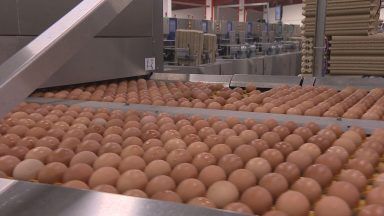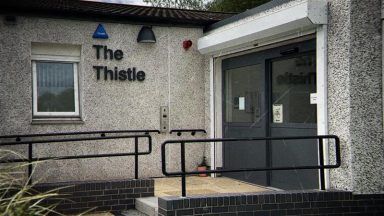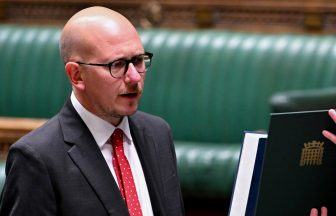Planned changes to the UK’s immigration rules have been widely criticised by industry leaders and opposition politicians.
The UK Government has told employers they will “need to adjust” after deciding it will not offer visas to ‘low-skilled’ migrant workers after Brexit.
A policy statement outlining plans for a new points-based system said the economy needs to move away from a reliance on “cheap labour from Europe”.
The changes are designed to cut the number of ‘low-skilled’ migrants entering Britain from the beginning of next year but aim to make it easier for ‘higher-skilled’ workers to get UK visas.
First Minister Nicola Sturgeon said it was “impossible to overstate how devastating this policy will be for Scotland’s economy”.
She added in a tweet: “Tory immigration policy is offensive in principle – it labels vital workers making a big contribution as ‘low skilled’ and slams the door in their faces.”
Donald Macaskill, chief executive of Scottish Care, claimed UK ministers were “in cloud cuckoo land”, while the Scottish Tourism Alliance branded the plans “the biggest threat to Scotland’s tourism industry”.
The Federation of Small Businesses in Scotland said only five per cent of the national’s small firms had experience of the system, which it described as “notoriously complex”.
Policy chair Andrew McRae said: “Small businesses need a system that reflects Scotland’s needs without tying them up in red tape.
“We believe this can be incorporated within a new immigration system if the political will exists.”
But Scotland Office minster Douglas Ross said: “Our points-based immigration system will deliver what businesses in Scotland have asked for and work in the interests of the whole of the United Kingdom.”
New Scottish Tory leader Jackson Carlaw said the party would work with their Westminster counterparts to “ensure Scotland’s needs are appropriately met”.
The Confederation of British Industry (CBI) warned care, construction, hospitality, food and drink companies could be most affected.
Industry leaders hit out at the lack of provision for low-paid workers, while lawyers urged the government “not to turn the tap off overnight” if companies struggle to recruit.
Unison assistant general secretary Christina McAnea said the plans “spell absolute disaster for the care sector”.
Dame Donna Kinnair, chief executive and general secretary of the Royal College of Nursing, raised concerns that the proposals will “not meet the health and care needs of the population”.
National Farmers’ Union president Minette Batters expressed “serious concerns” about the government’s “failure to recognise British food and farming’s needs” in the proposals.
According to the policy paper, the system will “attract the high-skilled workers we need to contribute to our economy, our communities and our public services.
But it added: “We will not introduce a general low-skilled or temporary work route.
“We need to shift the focus of our economy away from a reliance on cheap labour from Europe and instead concentrate on investment in technology and automation.
“Employers will need to adjust.”
The EU Settlement Scheme, designed to give EU citizens permission to stay and work in the UK after Brexit, will “provide employers with flexibility to meet labour market demands”, the paper said.
Expanding a seasonal workers scheme and arrangements with eight countries to welcome young people to the UK will also help employers but they are expected to take “other measures to address shortages”, the paper said.
Employers have until January 1, 2021 to meet the requirements and ensure their staff have a right to work in the UK.
The plans will see the UK have “full control over who comes to this country” for the “first time in decades”, according to the paper.
EU and non-EU citizens will be treated equally with criminal background checks carried out on everyone coming to the UK – affecting applications of anyone who has been given a prison sentence of 12 months or more.
People who want to live and work in the UK will need to gain 70 points to be eligible to apply for a visa.
Points will be awarded for key requirements like being able to speak English to a certain level, having a job offer from an approved employer, and meeting a minimum salary threshold.
“Top priority” will be given to those with “the highest skills and the greatest talents”, like scientists, engineers and academics – who may not need a job offer to be allowed in.
Other points will be awarded for certain qualifications and if there is a shortage in a particular occupation.
Announcing the policy during a visit to Imperial College in west London, Home Secretary Priti Patel said: “It is right that people should speak English before they come to our country, that they should have a sponsored route, whether it’s through employment or a sponsored route through an academic institution.”
The salary threshold for skilled migrants will be lowered to £25,600 for those coming to the UK with a job offer and there may be concessions for those earning no less than £20,480 as long as they still meet certain requirements or their occupation is short of staff.
Fees for work visas are expected to remain largely the same at around £1200.
Last month, independent adviser the Migration Advisory Committee said replacing freedom of movement with a points-based immigration system after Brexit could cut economic growth and may have “zero effect” on providing more British jobs for British workers.
Follow STV News on WhatsApp
Scan the QR code on your mobile device for all the latest news from around the country























